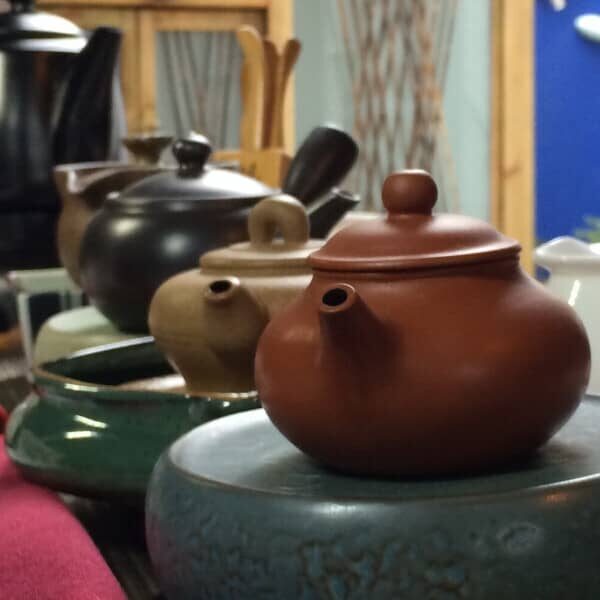For Your Teas & Tea Pots
A Little Bit of TLCs
Tea tends to soak up whatever is in the environment around it. So its aroma and flavour may be spoiled by light, humidity, extraneous smells and changes in temperature.
We recommend that tea be kept in airtight, lightproof containers stored in a cool, dry place. Wood, paper, jute are traditional materials used for this purpose, but ceramic and metal are perfectly acceptable. Opinions vary on the use of glass jars or canisters; so long as they’re airtight and kept away from light, then glass should present no problem. We advise against plastic as many plastics are surprisingly porous.
Green teas and less oxidised oolongs, whites and yellows can certainly be refrigerated, so long as the wrapping keeps out any moisture.
As a rough guide it should be possible to keep tea unopened for 18 months or opened for 6 months provided it’s properly sealed and stored away from light, damp, air and heat.
Treating your purple clay pot well will bring years of joy from brewing your favourite tea. If you use the same tea for the pot and if you care for the pot well, the pot will have absorbed the flavours of the tea over many years so that you will be able to brew your favourite tea by simply adding hot water into the pot!
Purple clay is porous and will absorb any aroma or flavour. So do not use any soap or detergent to clean your pot.
Before you use a Yixing purple clay pot, you need to season the pot.
- First, clean all natural sediments in the tea pot with a cloth.
- Then put the pot and its lid separately into a clean saucepan and pour in cold soft water to cover the pot.
- Throw in a handful of leaves of the tea type which you wish to use the pot for after seasoning.
- Bring the saucepan to a simmering boil for 15 mins and then leave it to cool overnight.
- Take the seasoned pot and lid out of the pan. Rinse them with hot water and leave to dry naturally.
After brewing your tea, simply remove used tea leaves from the pot. Pour hot (preferably soft) water into the pot and over the exterior of the pot. With the lid on, carefully turn the pot upside down. Holding the handle, lift the pot up leaving the lid on the tea tray. All the water in the pot will be flushed out of the pot together with any bits of tea leaves. Leave the pot and lid to dry naturally.
Nurturing your pot will give it a natural lustre and wonderful aroma.
LET’S GO PICK SOME TEAS









